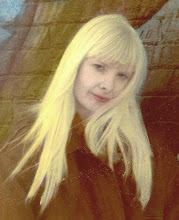
Dean Martin (June 7, 1917 – December 25, 1995) was an American singer, film actor and comedian. Martin's hit singles included "Memories Are Made of This", "That's Amore", "Everybody Loves Somebody", "Mambo Italiano", "Sway", "Volare" and "Ain't That a Kick in the Head?". Nicknamed the "King of Cool", he was one of the members of the "Rat Pack" and a major star in four areas of show business: concert stage/night clubs, recordings, motion pictures, and television.
Martin attracted the attention of Metro-Goldwyn-Mayer and Columbia Pictures, but a Hollywood contract was not forthcoming. He seemed destined to remain on the nightclub circuit until he met a comic named Jerry Lewis at the Glass Hat Club in New York, where both men were performing. Martin and Lewis formed a fast friendship which led to their participation in each other's acts and the ultimate formation of a music-comedy team. More than a few people dubbed them "The Organ Grinder and the Monkey".
Martin and Lewis' official debut together occurred at Atlantic City's 500 Club on July 24, 1946, and they were not well received. The owner, Skinny D'Amato, warned them that if they did not come up with a better act for their second show later that night, they would be fired. Huddling together in the alley behind the club, Lewis and Martin agreed to "go for broke", to throw out the pre-scripted gags and to improvise. Dean sang and Jerry came out dressed as a busboy, dropping plates and making a shambles of both Martin's performance and the club's sense of decorum until Lewis was chased from the room as Martin pelted him with breadrolls. They did slapstick, reeled off old vaudeville jokes, and did whatever else popped into their heads at the moment. This time, the audience doubled over in laughter. This success led to a series of well-paying engagements on the Eastern seaboard, culminating in a triumphant run at New York's Copacabana. Patrons were convulsed by the act, which consisted primarily of Lewis interrupting and heckling Martin while he was trying to sing, and ultimately the two of them chasing each other around the stage and having as much fun as possible. The secret, both said, is that they essentially ignored the audience and played to one another.

A radio series commenced in 1949, the same year Martin and Lewis were signed by Paramount producer Hal B. Wallis as comedy relief for the movie My Friend Irma.
Martin liked California which, because of its earth tremors, had few tall buildings. Suffering as he did from claustrophobia, Martin almost never used elevators, and climbing stairs in Manhattan's skyscrapers was not his idea of fun.
Their agent, Abby Greshler, negotiated for them one of Hollywood's best deals: although they received only a modest $75,000 between them for their films with Wallis, Martin and Lewis were free to do one outside film a year, which they would co-produce through their own York Productions. They also had complete control of their club, record, radio and television appearances, and it was through these endeavors that they earned millions of dollars.
Martin and Lewis were the hottest act in America during the early 1950s, but the pace and the pressure took its toll. Most critics underestimated Dean's contribution to the team, as he had the thankless job of the straight man, and his singing had yet to develop into the unique style of his later years. Critics praised Lewis, and while they admitted that Martin was the best partner he could have, most claimed Lewis was the real talent and could succeed with anyone. However, Lewis always praised his partner, and while he appreciated the attention he was getting, he has always said the act would never have worked without Dean Martin. In Dean & Me, he calls Martin one of the great comic geniuses of all time. But the harsh comments from the critics, as well as frustration with the formulaic similarity of Martin & Lewis movies, which producer Hal Wallis stubbornly refused to change, led to Martin's dissatisfaction. He put less enthusiasm into the work, leading to escalating arguments with Lewis. They finally could not work together, especially after Martin told his partner he was "nothing to me but a dollar sign". The act broke up in 1956, 10 years to the day from the first official teaming.
Splitting up their partnership was not easy. It took months for lawyers to work out the details of terminating many of their club bookings, their television contracts, and the dissolution of York Productions. There was intense public pressure for them to stay together.
Lewis had no trouble maintaining his film popularity alone, but Martin, unfairly regarded by much of the public and the motion picture industry as something of a spare tire, found the going hard. His first solo film, Ten Thousand Bedrooms (1957), was a box office failure. He was still popular as a singer, but with rock and roll surging to the fore, the era of the pop crooner was waning. It looked like Martin's fate was to be limited to nightclubs and to be remembered as Jerry Lewis's former partner.
The CBS film, Martin and Lewis, a made-for-TV movie about the famous comedy duo, starred Jeremy Northam as Martin, and Sean Hayes as Lewis. It depicted the years from 1946-1956.




No comments:
Post a Comment